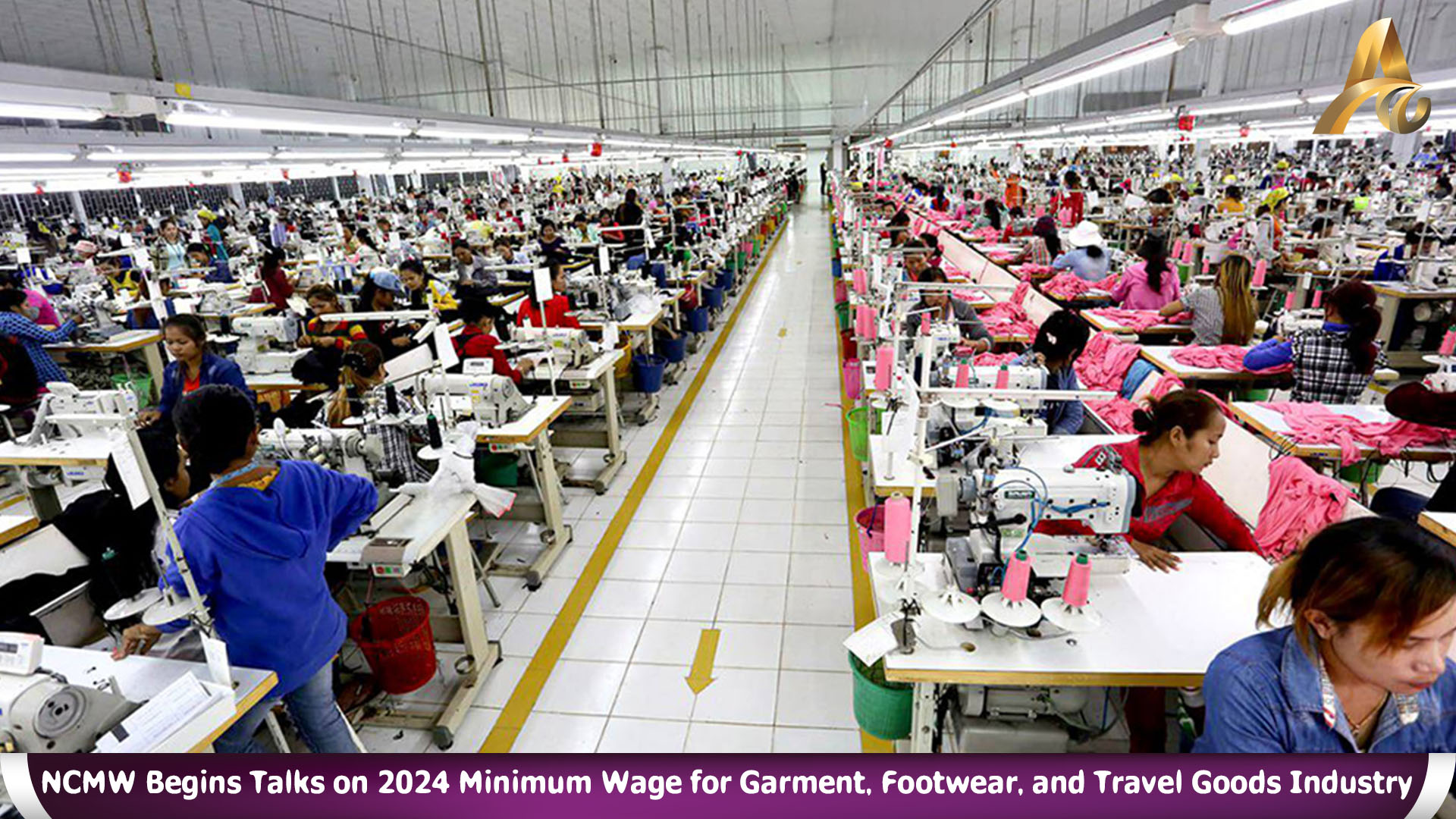Cambodia's National Council on Minimum Wage (NCMW) began discussions on Wednesday on the annual increase of monthly minimum wage for the garment, footwear, and travel goods industry for 2024.
The meeting was chaired by Labor and Vocational Training Minister H.E. Ith Samheng, with the participation of representatives from the government, employees, and employers.
In the meeting, the three parties presented key statistical updates on socio-economic criteria to form the basis for the minimum wage talks, as well as input from representatives of employers and employees on factors such as current inflation, competition, and market situation.
Specific figures for the negotiations have not yet been proposed, as they need further internal discussions.
The garment, footwear, and travel goods industry is the largest foreign exchange earner for Cambodia. The sector consists of approximately 1,077 factories and branches, employing around 800,000 workers, mostly female.
Among the factories, there are 802 garment factories, 140 shoe factories, and 134 travel goods factories.
Cambodia exported US$6.27 billion worth of garment, footwear, and travel goods during the first seven months of this year, a decline from the US$7.89 billion exported during the same period last year, according to the trade data of the General Department of Customs and Excise.
The monthly minimum wage for the sector is US$200 in 2023, up from US$194 in 2022.
The NCMW is expected to meet again in the coming weeks to continue discussions on the 2024 minimum wage. The council is tasked with setting the minimum wage for all sectors in Cambodia, and its decisions are binding on all employers.
The discussions on the 2024 minimum wage are likely to be challenging, as the industry is facing a number of challenges, including rising inflation and increasing competition from other countries. However, the NCMW is committed to ensuring that the minimum wage is fair for both employers and employees.
























